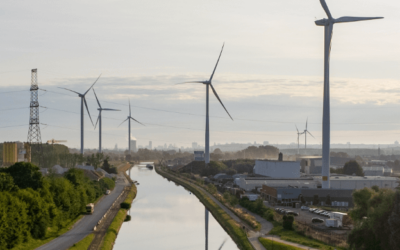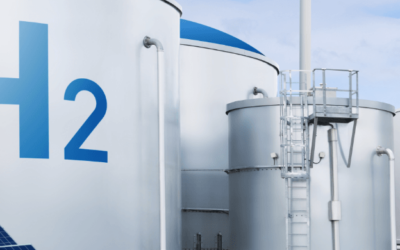Important news for Dutch entrepreneurs who have plans to purchase a cargo vehicle. In mid-2022, a new grant scheme will start: AanZET. This grant reduces the price difference between a ‘classic’ diesel truck and a clean zero-emission truck. The scheme means an extra impulse for making Dutch freight transport more sustainable.
What is AanZET?
In a recent letter to parliament, State Secretary Steven van Weyenberg of Infrastructure and Water Management informed the Dutch MPs about the introduction of ‘zero-emission zones’ for urban logistics in Dutch cities. He also presented his plans for a new grant scheme that will make purchasing a zero-emission truck more attractive: AanZET (in Dutch: Aanschafsubsidie Zero Emissie Trucks).
This grant scheme is currently being prepared in consultation with various Dutch truck manufacturers and interest groups such as TLN (Dutch Association for Transport and Logistics), RAI Associaton, evofenedex (Dutch Entrepreneurs’ Organisation for Logistics and Transport) and BOVAG (Dutch Association of Car Dealers and Repairers). Companies can apply for a grant from 1 May or 1 June 2022, depending on the planning.
AanZET: goal and target group
The AanZET grant scheme is meant for Dutch entrepreneurs who are considering the purchase of a new N2 or N3 truck. They can apply for a grant if they do not opt for an ‘ordinary’ diesel truck, but for a clean emission-free truck with a battery-electric or hydrogen-electric drive.
The grant consists of a contribution towards the additional costs of the emission-free truck compared to a diesel truck, and can be applied for by companies and non-profit institutions (such as foundations and hospitals). The grant is not meant for governments or private persons.
How much is the grant?
The grant amounts of the AanZET scheme depend on two factors: the type of vehicle, and the size of the company (the ‘applicant’). In the current plans, the following aid percentages and maximum grant amounts apply:
For the purchase of a zero-emission N2 cargo vehicle (up to 12 tonnes):
- large enterprises: 12.5% grant aid (up to a maximum of 17,800 euros)
- medium-sized enterprises: 19% grant aid (up to a maximum of 26,800 euros)
- small enterprises: 25% grant aid (up to a maximum of 35,700 euros).
For the purchase of a zero-emission N3 chassis cab truck:
- large enterprises: 15% grant aid (up to a maximum of 43,600 euros)
- medium-sized enterprises: 21.5% grant aid (up to a maximum of 63,700 euros)
- small enterprises: 28.5% grant aid (up to a maximum of 84,000 euros).
For the purchase of a zero-emission N3 tractor-trailer truck:
- large enterprises: 20% grant aid (up to a maximum of 72,700 euros)
- medium-sized enterprises: 28.5% grant aid (up to a maximum of 102,300 euros)
- small enterprises: 37% grant aid (up to a maximum of 131,900 euros).
To give a brief explanation: small enterprises are generally companies with up to 50 employees and an annual turnover (or balance sheet total) of up to 10 million euros. A medium-sized enterprise has 50 to 250 employees, and an annual turnover of up to 50 million euros and/or a balance sheet total of up to 43 million euros.
Additional advantage ‘via MIA’
In addition to the AanZET grant, Dutch companies that purchase an emission-free truck can also make use of the MIA environmental investment allowance (in Dutch: Milieu-investeringsaftrek). In this way, they can cover an even larger part of the additional costs. This brings the total government support close to the maximum support percentages allowed on the basis of the European state aid framework (namely: 40% for large enterprises; 50% for medium-sized and 60% for small enterprises). Companies that want to create extra loading or refuelling infrastructure on their own site can also make use of the MIA scheme
AanZET: dates and details
After an online consultation for AanZET in January 2022, the grant scheme is now being adjusted in some respects. The definitive scheme will be published in the Dutch Staatscourant (‘Government Gazette’) in April 2022. Submitting a grant application will probably be possible from 1 June 2022. The expected budget for the starting year 2022 is 13.5 million euros, the grant scheme will probably run until the end of 2029.


